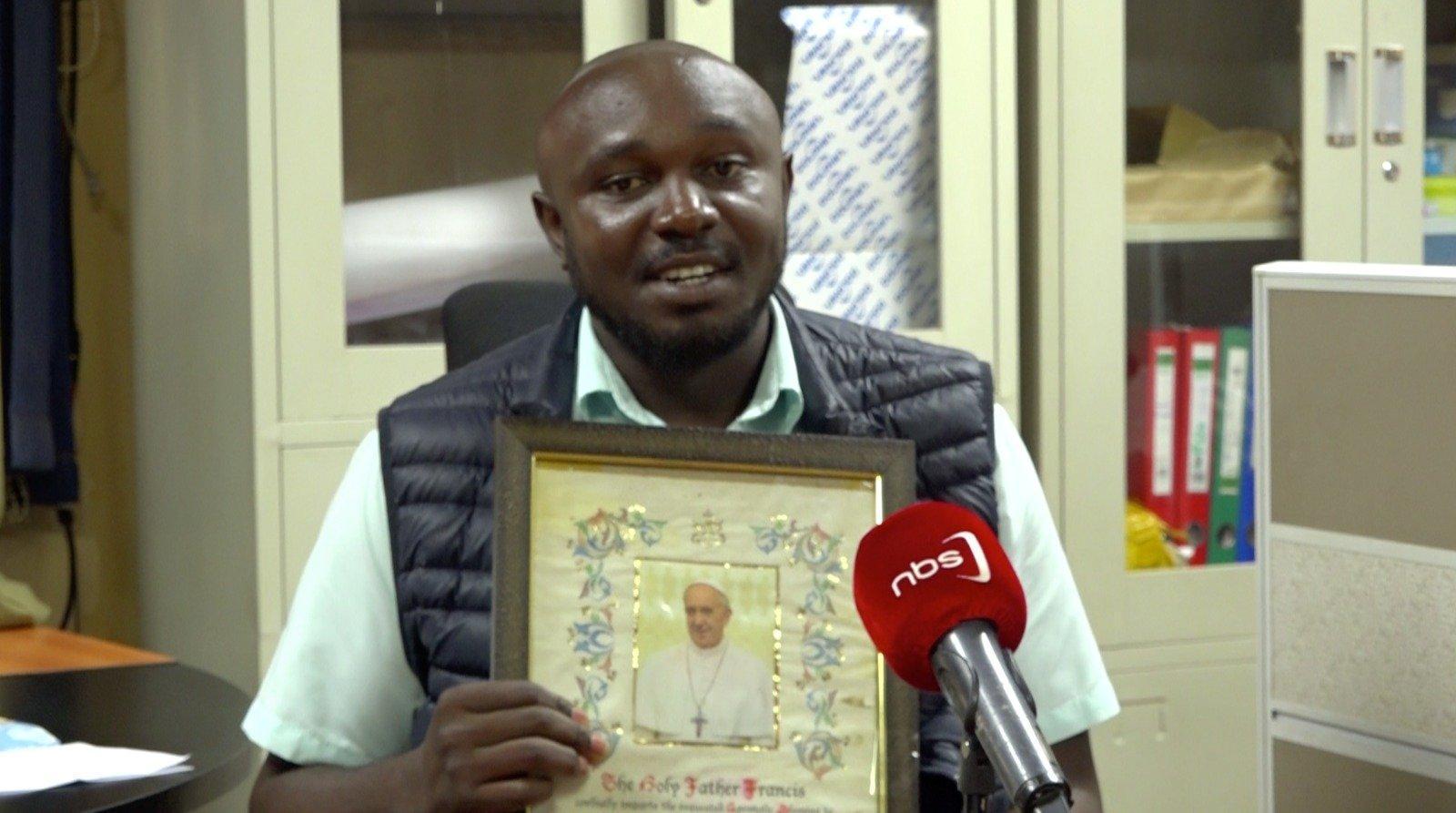Africa-Press – Uganda. Ten years after Pope Francis set foot in Uganda, his presence continues to resonate deeply with many Ugandans, especially among young people and teachers who encountered him during the 2015 visit.
What was widely hailed as a momentous religious event has become a lasting source of inspiration and personal transformation.
Steven Efumbi, a teacher who met the Pope both as a youth at Kololo Grounds and later in Munyonyo as an educator, recalls the experience with a reverence that time has only deepened.
“The Pope encouraged us to uphold the values of teaching and to nurture children, since teachers spend more time with them than even parents do,” he says.
“He also urged us to fight tribalism and corruption and instead promote unity and peace.”
Efumbi, who continues to share the Pope’s message with fellow educators, believes it remains critical for nurturing a generation grounded in values of service and moral clarity.
“The Pope’s words didn’t just apply to the classroom. They were a call to action for how we live together as Ugandans,” he says.
Simon Peter Mukasa, who was then the youth leader of Lubaga Archdiocese, remembers vividly the moment he stood before the Holy Father.
“The Pope’s message resonated with the reality of young people’s lives, emphasizing hope and perseverance,” Mukasa says.
“What touched us the most was when he spoke and blessed us in Luganda. It gave me strength and confidence that I carry with me to this day.”
Mukasa, now a businessman, still holds on to his security clearance card from the 2015 event and treasures a prayer Pope Francis sent to him and his wife on their wedding day.
“It wasn’t just a speech—it was a moment of connection that still gives me courage,” he says.
The Pope’s visit, which included personal meetings with youth and teachers, was marked by gestures that transcended protocol and hierarchy.
He was seen as a spiritual father who understood the struggles of a nation’s younger generation, from the challenges of unemployment to the pressures of corruption and social division.
In schools and parishes, his calls for faith, service, and justice continue to be referenced. For those who were present, the memory of his warmth and humility still burns bright—a reminder of the power of moral leadership and human connection.
To many Ugandans, Pope Francis’ three-day stay in November 2015 was not merely ceremonial; it was a moral checkpoint.
Ten years later, the messages of unity, compassion, and resilience he delivered have taken root in classrooms, homes, and lives—quietly shaping the Uganda of today.
For More News And Analysis About Uganda Follow Africa-Press






